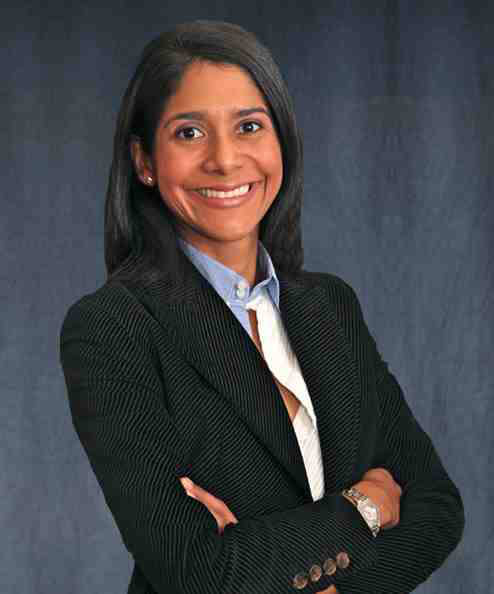Human talent in Latin America: Challenges to Entrepreneurship
Bogotá, Colombia − One of the topics under discussion at the World Economic Forum on Latin America in Rio de Janeiro was "Innovation,” and the following areas were identified as most relevant for our region:

- Technology
- New business models
- Native Venture Capital
- Entrepreneurship
I would like to call the attention to the last area, "Entrepreneurship", and understand the challenges facing us in terms of human talent to develop employees into "entrepreneurs."
The conclusion was that two principal aspects stand out as challenges to Entrepreneurship in Latin America:
- Latin American leaders must promote the competence and confidence of the potential entrepreneurs within their teams.
- The culture of the region does not allow people to learn from mistakes.
I believe that first and foremost, it is important to define what an "entrepreneur" is. According to the Royal Academy of Language, the word "entrepreneur" means "a person who undertakes, with resolution, difficult or random actions"; we can therefore say that an entrepreneur is a strong person who takes on challenges with determination to accomplish their objectives. I would venture to say that entrepreneurship is a way of thinking, feeling and acting; in order to understand what it means to be an entrepreneur, one must live it. Only then will the prospective entrepreneur have the necessary drive and impetus to overcome obstacles and achieve goals.
Wouldn’t it be convenient then to encourage each of our team members to act as true entrepreneurs? Shouldn’t we make it easier for our employees to become entrepreneurs?
Training entrepreneurial leaders is not an easy task. We must empower autonomy, leadership, decision-making and willpower. It requires a huge amount of humility, and the desire (we could call it Will) to go against the deep-rooted culture in which errors are penalized rather than used as opportunities for personal and organisational learning. "You can be innovative, you can be enterprising, but you must not make a single mistake."
A child learns to walk after falling a thousand times. Children do not mind falling over and over again because their parents encourage them to keep trying over and over and again, no matter how many times they fall. The freedom to fall gives the child enough confidence to eventually move on from crawling.
I think we all have an entrepreneurial vein. Within our organisations – not all of them, and I will give some examples of exceptions later on – we are asked to be innovative, to obtain results and to meet objectives. But if these requests do not come from an organisational culture that provides the tools for it – and even more importantly, if we do not have the organisational leaders to build and generate trust and confidence – then our people will not be willing to take on challenges where they may possibly make mistakes, but where they can then stand up again and learn from their mistakes with discipline, perspective and professionalism.
Organisations must invest in an error rate in order to foster a high-performance culture and therefore develop entrepreneurial leaders. What do I mean by an error rate? For example, Google engineers spend one day a week on secondary projects, meaning that 20% of their time is spent working with a project of their choice. Some of them invest that time in fixing an existing product, but most engage in developing new products, and afterwards Google gets the intellectual property rights from the side projects that are developed. Many well-known projects were developed in this way, such as Google News, Gmail, Google Talk, Google Sky and Google Translate. These great ideas came from people working on projects with absolute autonomy, enough motivation and the company’s confidence that they would deliver. Such processes should be gradually implemented in organisations in order to start generating awareness and a culture of skills such as independence and responsibility.
The lesson for leaders is clear: build the pillars of trust – responsibility, autonomy, collaboration and initiative – when times are good and achievements come easily. This confidence must be maintained, as it will be your insurance against the inevitable times of crisis that will become more and more frequent in today’s unstable economy.
I am certain that by developing entrepreneurs with a sense of belonging throughout all levels of the organisation, we can generate a high degree of motivation for them to give 101% of their potential, thus achieving success for all, and most importantly creating sustainable organisations in time to answer the challenges of the region.
 Fernanda Garcia is the Country Manager for Colombia at Pedersen & Partners.Before joining the firm, Ms. Garcia was the Country Manager for Colombia for another international Executive Search firm, where she was responsible for the business development of the client portfolio in industries such as Telecommunications, IT, Consumer Goods, Finance, Oil & Gas and Services. She has extensive experience in consulting and project management in Europe and Latin America with strong knowledge of human resources, change management and business processes. Before moving to the Executive Search industry, Ms. Garcia was a Senior Account Manager for a well-known human consulting firm based in Madrid, Spain. She has also gained experience as a Change Management Consultant at Ernst & Young, where she developed the practice for Colombia, Perú and Costa Rica.
Fernanda Garcia is the Country Manager for Colombia at Pedersen & Partners.Before joining the firm, Ms. Garcia was the Country Manager for Colombia for another international Executive Search firm, where she was responsible for the business development of the client portfolio in industries such as Telecommunications, IT, Consumer Goods, Finance, Oil & Gas and Services. She has extensive experience in consulting and project management in Europe and Latin America with strong knowledge of human resources, change management and business processes. Before moving to the Executive Search industry, Ms. Garcia was a Senior Account Manager for a well-known human consulting firm based in Madrid, Spain. She has also gained experience as a Change Management Consultant at Ernst & Young, where she developed the practice for Colombia, Perú and Costa Rica.
Pedersen & Partners is a leading international Executive Search firm. We operate 56 wholly owned offices in 52 countries across Europe, the Middle East, Africa, Asia & the Americas. Our values Trust, Relationship and Professionalism apply to our interaction with clients as well as executives. More information about Pedersen & Partners is available at www.pedersenandpartners.com
If you would like to conduct an interview with a representative of Pedersen & Partners, or have other media-related requests, please contact: Diana Danu, Marketing and Communications Manager at: diana.danu@pedersenandpartners.com
